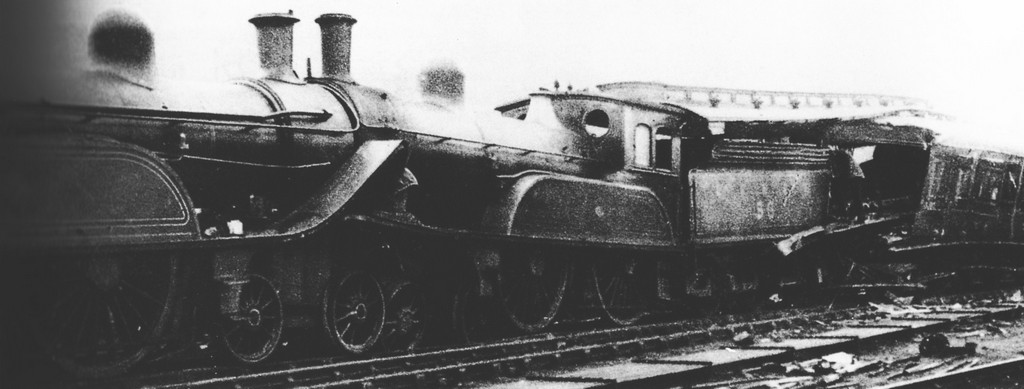12 fatalities (link to 15 page PDF within). Described elsewhere as “The Hull Paragon rail crash, when a particular action took 1.6 seconds, and happened to take place within the 1.9 second window which led to disaster” (see note below.)
This disastrous head-on collision was caused by the Scarborough train, after acceptance had been given and the proper signals lowered for it to proceed on C outgoing road past West Parade Junction signal-box, being diverted on to B facing ingoing road, upon which the Withernsea train was approaching the terminal station. I can recollect no case of an accident having occurred in similar circumstances.
It was fortunate that, although so many of the vehicles were fitted with gas lighting, no fire arose in the wreckage.
Conclusion:
The root cause of this accident is, I think, psychological - there is a human factor to take into account. The Withernsea train was already late, but had been signalled to Park Street signal box as “entering section.” If this train had been stopped at No. 11 signal on B road, owing to its arrival at the signal post before the points could be set from B to D road, it would have been signalman Gibson’s duty to record the fact. It is human nature for men, who take honest pride in their work, to avoid if possible having to book the stoppage of a train, especially one already late, at a signal for the working of which they are responsible. It is possible, therefore, for this reason, that both Gibson and Clark acted more hurriedly on this occasion than they should have done. Gibson may have replaced 171 signal somewhat earlier than usual, and Clark, with his eyes fixed on Gibson’s movements, instead of on the train, so that no time should be lost in setting the road for the Withernsea train, began pulling his levers before the Scarborough train had passed, and made the disastrous mistake of pulling 95 instead of 96. Mr. Jones assured me that in the circumstances, with a train so late, he would certainly not have blamed a signalman if it had been checked by signal.
Incongruously via a comment here:
How did MS-DOS decide that two seconds was the amount of time to keep the floppy disk cache valid?
as posted over on retrocomputingforums.com by @sohkamyung
